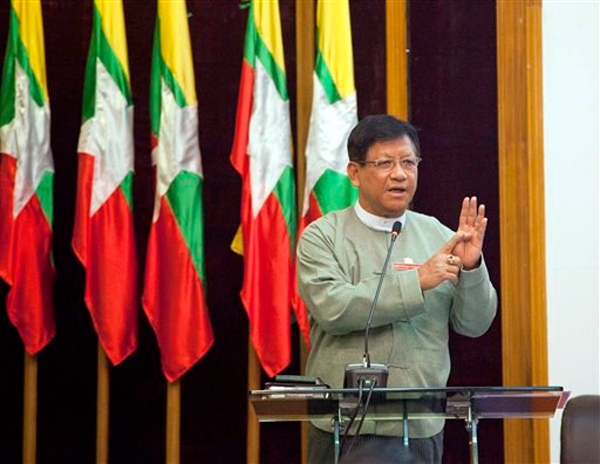Myanmar general elections scheduled for November 8
YANGON: Myanmar on Wednesdsay announced November 8 as the date for a historic general election set to be the first contested by Aung San Suu Kyi’s opposition in a quarter of a century.
The announcement from the country’s election commission fires the starting gun for the much-anticipated poll in the former junta-run nation, which has launched a series of reforms since the end of outright military rule in 2011.
The vote, seen as a crucial test of the country’s democratic progress, will determine the elected contingent in the fledgling parliament with a president selected by the legislature later. But Suu Kyi is barred by the constitution from taking the top job. The Nobel laureate’s National League for Democracy (NLD) party did not immediately confirm it would participate in the polls, although it is widely expected to make huge gains at the ballot box.
“We cannot say whether we will take part right now. We need to hold a meeting to make a decision,” spokesman Nyan Win told AFP.
The NLD has gone house-to-house in recent days urging people to check official voter lists and raising concerns that those displayed across the country are riddled with inaccuracies. The Union Election Commission said on its website that the parliamentary election would take place on November 8 with candidates given between July 20 and August 8 to register. For Myanmar’s roughly 30 million voters the election presents a rare chance to cast their votes in a nationwide poll contested by the country’s main opposition.
The NLD won national polls in 1990 by a landslide, while Suu Kyi was under house arrest. But it was prevented from taking power by the military, who plunged the country into isolation for decades.
The democracy icon spent 15 years under house arrest and was also locked up during the last general election in 2010, which was boycotted by the NLD.
But the veteran campaigner and 44 of her party members now sit in parliament following a 2012 by-election held as part of sweeping
reforms under a quasi-civilian government dominated by former generals that replaced nearly half a century of military rule.
Last month Suu Kyi vowed not to “back down” from the election despite defeat in a parliamentary vote aimed
at ending the military’s effective veto on constitutional change. Myanmar’s parliament continues to be dominated by the army, with a quarter of the seats reserved for unelected soldiers.
This provision means any major charter change needs a majority of more than 75 percent — giving the military the final say.






